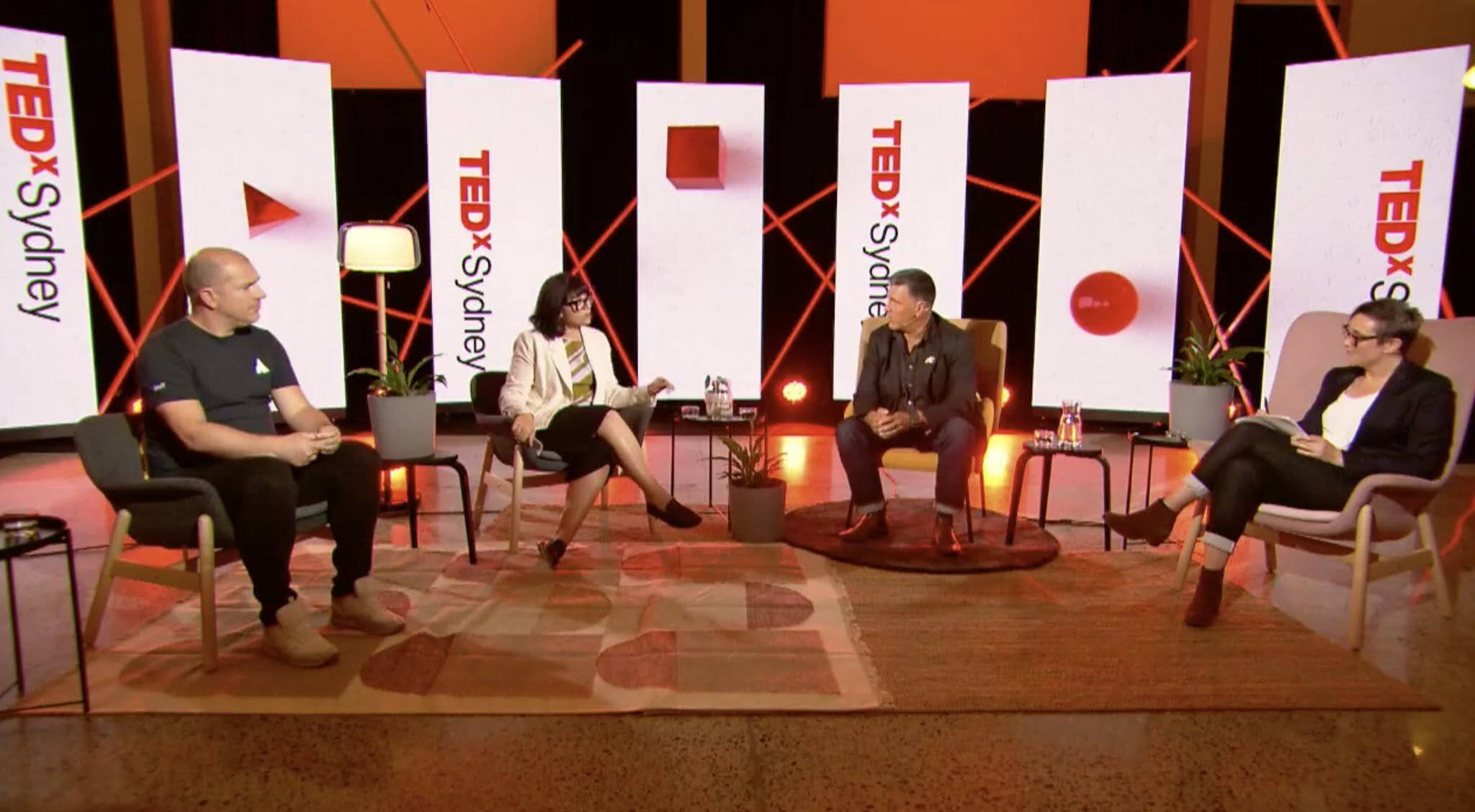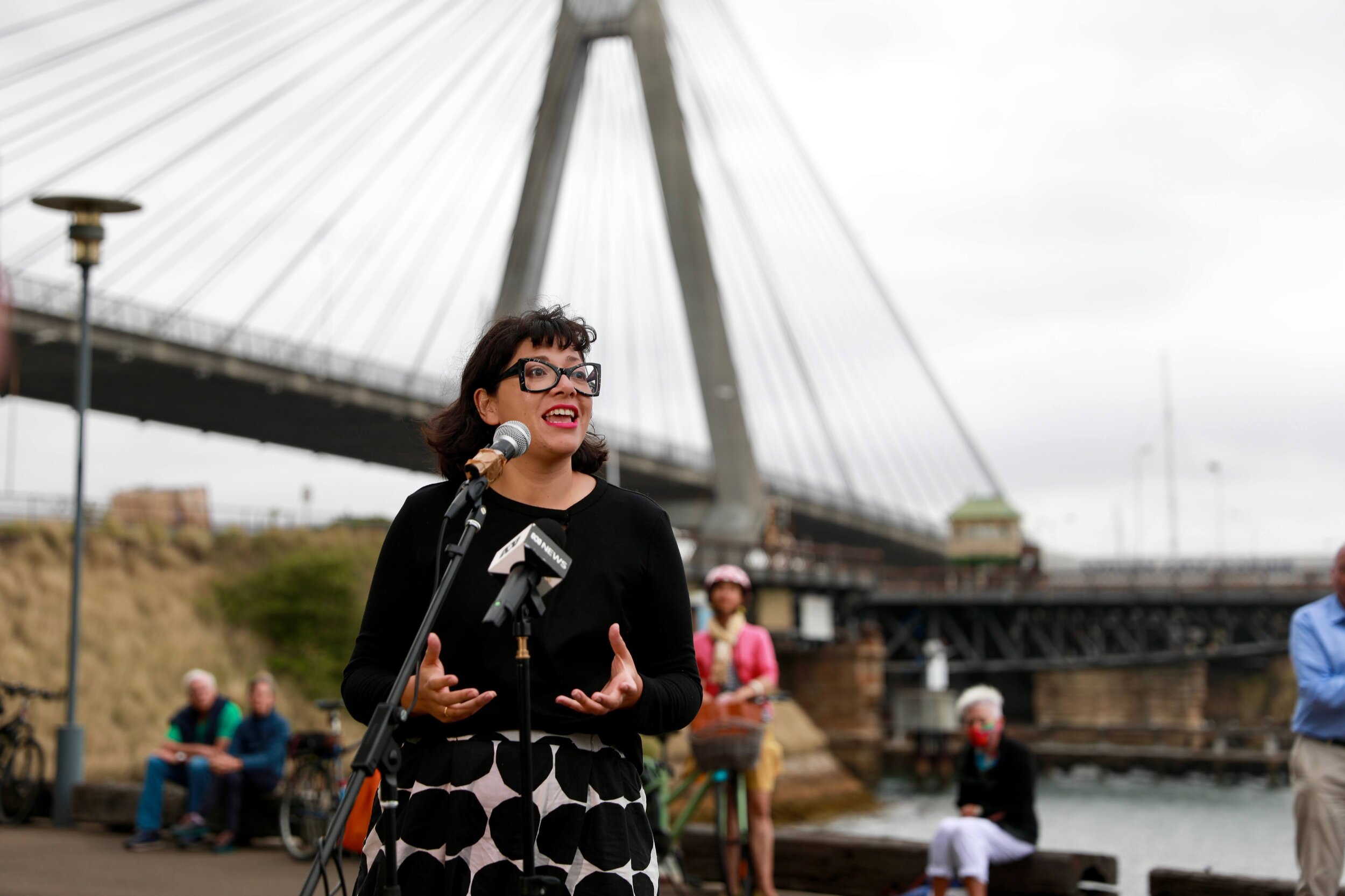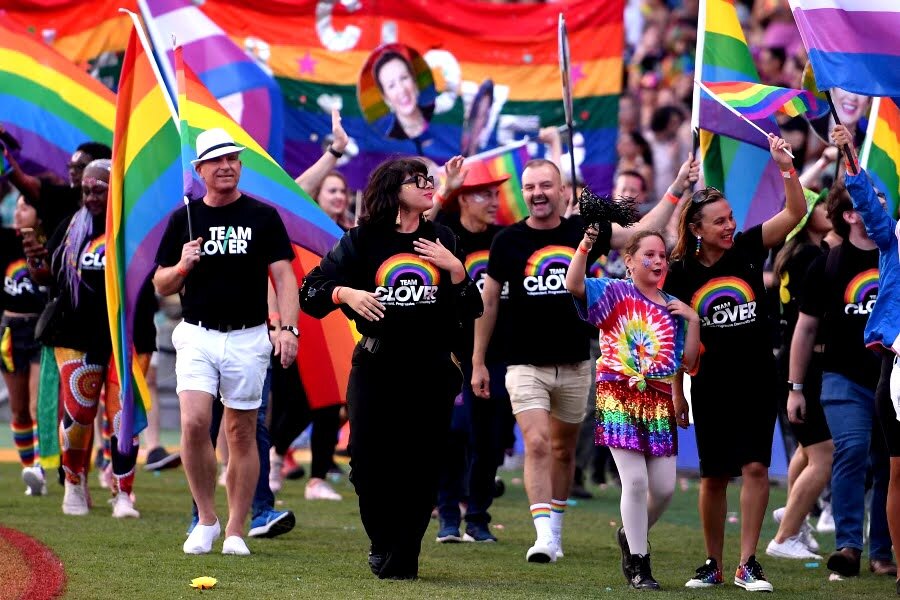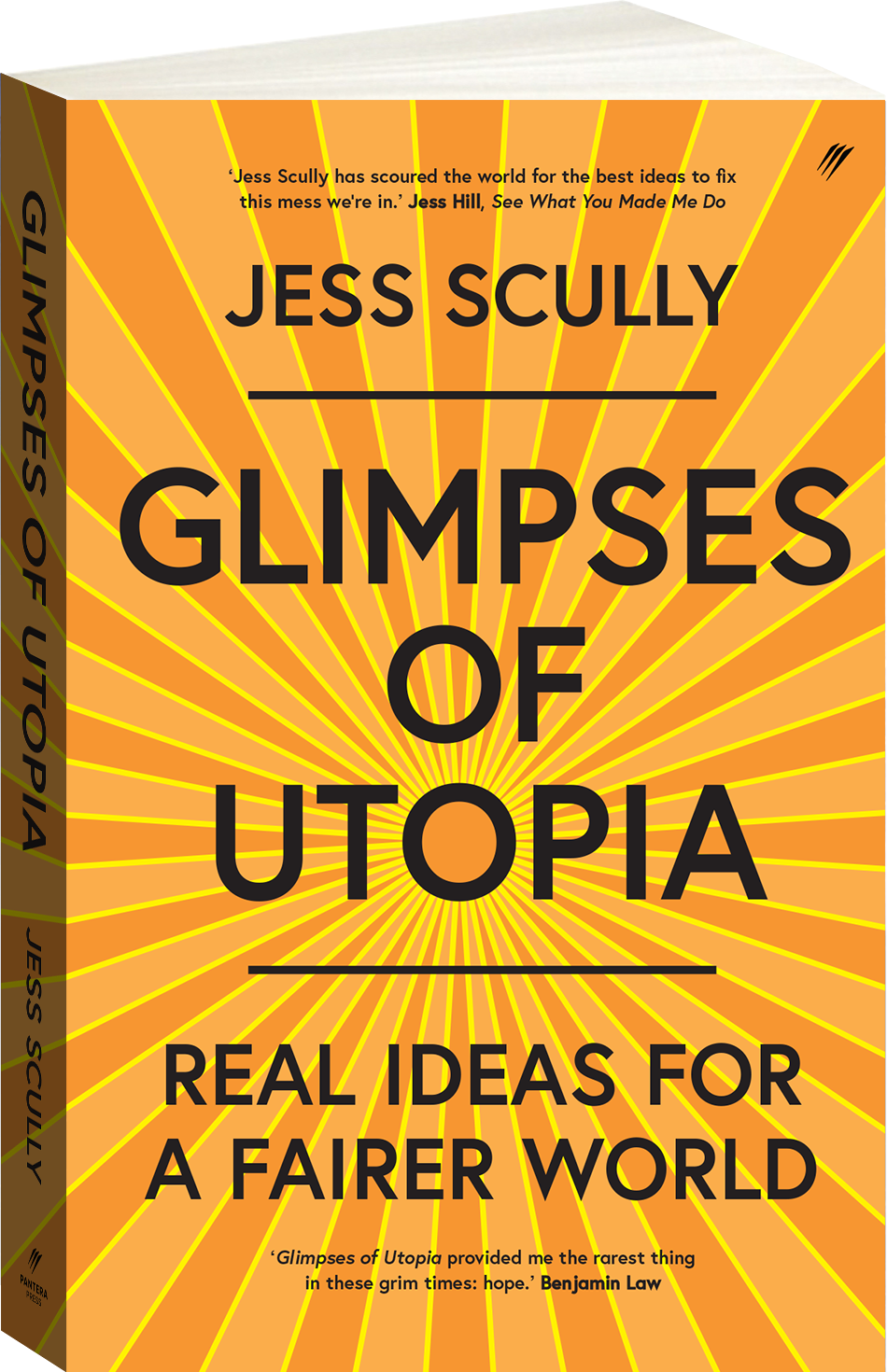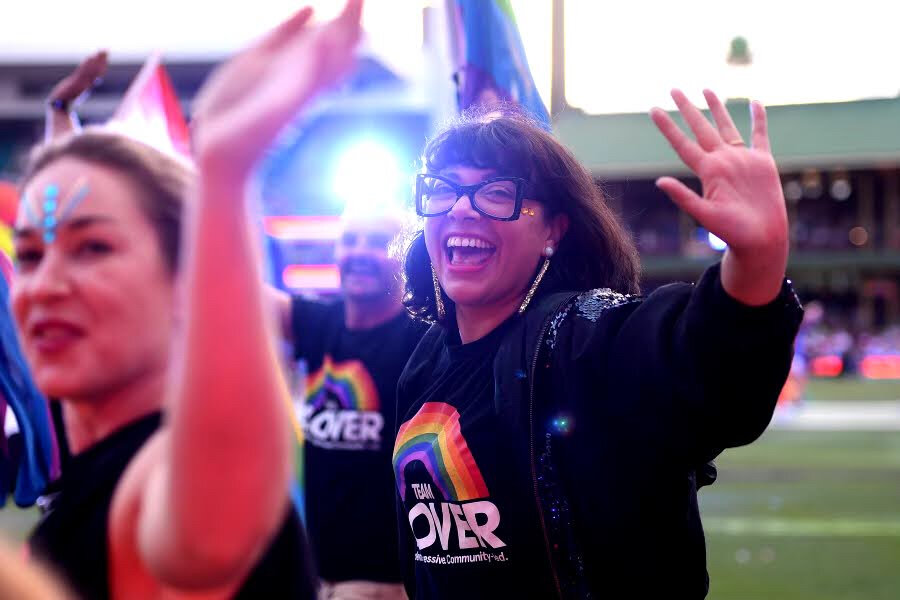Jess Scully
Councillor, Curator, Author
City of Sydney Councillor, curator and author Jess Scully. Photo: Daniel Boud
Interview by Peter Salhani | Photography BY Daniel Boud, edwina Pickle, dan himbrechts, linda matelijan
Jess Scully wants us all to be braver. Observing people succesfully forging their own paths, she says we can all “borrow their courage”. As a curator, mother, Deputy Lord Mayor of Sydney and author of Glimpses of Utopia, her mission is to get us all actively engaged in the political debate. She talks about believing in yourself, taking risks and having goals.
who are you & WHAT DO YOU DO?
I have an elected role in politics as the Deputy Lord Mayor of Sydney. I’m also a parent and an author, having recently written a book called Glimpses of Utopia. I’m passionate about Sydney, and about making a more creative and sustainable future. To do that, we have to build a more inclusive future. I come from a creative industries background, where I’ve run festivals and public events that bring people and ideas together.
2013 Vivid Ideas director, Jess Scully with creative adviser Ignatius Jones (centre) and Festival Director Fergus Linehan. Photo: Edwina Pickles (SMH)
WHY DO YOU DO THIS?
I’ve always been interested in social justice. I originally studied journalism and law, intending to be a political journalist, holding politicians to account and helping inform people. But I didn’t finish my studies. I was working while studying – editing a magazine called Yen – and seduced into the creative industries. So I became passionate about how creativity and city-making intersect each other. That led me to event curation as a way of connecting interesting people. I worked on TEDxSydney from 2012 to 2016 and curated Vivid Ideas from when Vivid began in 2009 to 2017. Then in 2016 I had a big opportunity to get inside the political tent.
Jess Scully in conversation with New York-based graphic designer, storyteller and typographer Stefan Sagmeister, for Vivid Sydney (2015). Photo: Daniel Boud
“we have to build a more inclusive future.”
A game-changer moment?
I had a meeting with Sydney Lord Mayor Clover Moore. I’ve always admired her as a principled, progressive and visionary political leader. I’d interviewed her once and the people around her noticed the work I’d been doing, particularly with TEDxSydney, and VIVID Ideas. She invited me to be part of her team. That was a key moment in my life.
Deputy Lord Mayor Jess Scully on a discussion panel at TEDxSydney 2020. Photo: Courtesy TEDxSydney
“If you see people forging their own paths successfully, you get braver.”
on risk?
I think I take risks. My parents raised me to have a lot of confidence to take risks, so I was never as interested in taking the ‘right next steps’ as others I knew. I met many people forging their own paths. And if you see people doing that successfully, you get braver. You borrow their courage.
Jess Scully with proud parents and sister in 2020 on the release of Glimpses of Utopia. Photo: Pat Armstrong
Gifts from your parents?
Mum came from Chile as a political refugee and overstayed her visa. Dad came as a migrant from India. They met in Australia in 1975. They’re both really passionate and optimistic people. They’ve had loads of different careers and love adventure. Which led to a less tethered upbringing. That has its own challenges, but my parents see the possibility in everything. And that’s a really positive trait. I think I’ve got that from them. I’m more sensible than them. And I’m not even that sensible!
Jess Scully speaking at the Pyrmont Bridge rally in Sydney’s Inner West. Photo: Jack Begbie
“years ago I set a mission statement for my career.”
Jess Scully speaking at the Sydney Peace Prize Lecture.
How do you set and pursue goals?
I have two overarching goals. Years ago I set a mission statement for my career: to help transition Australia from a resource extraction to a knowledge and creative economy. My other main goal is to help build a society where everybody feels like they have a place, a voice and that they’re valued and included. That’s how I determine if a project is worth me pursuing – if it works towards those goals.
“Success for me is connecting people.”
How do you celebrate success?
I’m one of those people who are rarely satisfied. I’m relieved to achieve things I set out to, but I always see the four other things I didn't get done. I need to work on that habit. But I’m getting better. Success for me is connecting people, and that’s definitely a skill I have. And lots of my projects are now in political and community life. So I see the fruits of making those connections, and am starting to recognise those successes.
How do you push through failure?
My approach is to try 20 things and hope half of them work. Not everything lands. Not everything is at its time. Sometimes the flame of an idea dies down, but then the ‘wind’ picks up and it reignites. I’ve seen that happen. I guess I’m philosophical about it.
Jess Scully and team Clover at etc 2021 Sydney Gay & Lesbian Mardi Gras. Photo: Dan Himbrechts
A recent example?
One of the things I’ve been most interested in over my career is opening up public space. Particularly making it easier for people to reclaim the footpath and feel a sense of ownership over it. I took a number of different approaches to doing that, but kept hitting a wall – from roads authorities saying, No, you have to do this, but you can’t do that, to other impediments. And then COVID hit. Social distancing meant that the State Government suddenly got behind the City of Sydney’s moves to take over parking spaces for outdoor dining out and that sort of thing. So the times have caught up with the idea.
Jess Scully addressing graduates at The University of Sydney, 2019. Photo: Pat Armstrong
Other goals or passions?
I want to help empower people to actively engage in the political and cultural life of their community and city. I think we get better a culture, life, politics and economy when people feel that way. Unfortunately at the moment, we only hear from a narrow band of people – not just in politics, but our cultural life – who are usually privileged with access, leisure time, language and resources. The world’s already designed for them, but what about everyone else?
“there’s got to be a bigger point to the shared endeavour of working and living together in societies.”
What keeps you awake at night?
We have two major crises we’re grappling with – climate change and inequality. And COVID-19 has arrived on top of that. Sydney is one of the most privileged cities in the world and yet there are still parts of our city where life expectancy is 10 to 20 years lower than in other parts. If you live in a suburb near Sydney harbour, you’re more likely to have access to open green space, cooler temperatures, educational and cultural infrastructure, than other parts of the city. If you don’t live in a privileged part of the city, or come from a wealthy or English speaking background, if you have never met or engaged with people who pursue alternative professions, then how would you know that was a possibility? If you can’t see it, you can’t be it.
Jess Scully with husband Pat, baby Elinor, Clover and Peter Moore in 2019. Photo: Jack Begbie
Trust and politicians?
A lot of people feel like they’re working harder than ever, or even than their parents did, and yet they’re moving down the ladder, not up. They also see how hard life will be for future generations because of the climate crisis and inequality. But our politicians don’t explain what’s broken. I think what’s missing is a credible explanation. The only real public forum to have a conversation about what we value collectively is usually an election campaign. That’s totally insufficient because it’s competitive; it’s like – do you want Coke or Pepsi? So the parties then appeal to people’s hip pockets. It’s purely transactional. But there’s got to be a bigger point to the shared endeavour of working and living together in societies. We just don’t hear that from our politicians.
“I think what’s missing is a credible explanation of what’s broken.”
Jess Scully. Photo: Linda Matelijan
Why did you write this book?
I wrote the book because I am optimistic about the future, and because most people I talk to aren’t. People all over the world are doing great things already, building foundations and solutions for a sustainable future. I wanted people to have that sense of optimism I feel, but also to properly understand the complexity, scale and systemic nature of the challenges we face, it’s interconnectedness. And to remind that the answers aren’t necessarily simple. Like, planting more trees is wonderful, but it won’t solve all our problems. A universal basic income is a good idea, but it’s not the fix for poverty that many people believe. There are other things at play. Everything is political. So the book delves into those things.
People all over the world are doing great things already…
What’s in the book?
It looks at some core issues in the social contract: What do we value? How do we determine what’s worth pursuing? What’s the point of shared endeavour, of living in a society. You know – the small things! Then it gets into area of human flourishing and Aristotle’s idea of Eudaemonia, which is about achieving human potential. That’s more than happiness, it’s a sense of responsibility towards each other.
A big chapter is ‘Refocus Politics’, talking about different ways of social decision-making that enable more active citizenship and participation, which I think is essential to get more diverse and representative policy outcomes. ‘Reward the human’ talks about the care economy, valuing domestic labour, caring for each other and the planet, and ways to improve that. The ‘Reform Finance’ chapter looks at ethical banking and tax reform – closing loopholes and moving to a system that taxes pollution not people.
“There is not just one set of problems or one set of solutions.”
So, quite a broad sweep?
Yes. There is not just one set of problems or one set of solutions. We are dealing with a system-level crisis, and every part of the system is breaking down. That gives us a huge opportunity to redesign the whole thing – not as a monoculture, but as a permaculture of different solutions that can be adapted to different locations. So the book is not one prescriptive set of things to roll out, but a menu of options that communities can draw from.
On the campaign trail, Councillor Jess Scully and team.
Lessons for Federal govt?
One idea that I’m working with people on already is a Citizens Convention on Climate. Until we get representatives who look more like us, a process of deliberative democracy could see citizens making decisions about significant issues and give politicians the courage and social license to do things they normally wouldn’t.
Councillor Scully getting input at a 2018 community feedback session in Sydney’s Inner West.
Any examples?
In 2020, the UK and France ran citizens’ assemblies (conventions) on climate change. Citizen groups were given all the information, access to experts and the ability to call evidence, and were tasked with writing their nation’s climate policy. They developed policy solutions that are going to be great COVID recovery and social justice recovery plans as well. For instance, a green recovery from COVID with stimulus for greater biodiversity in agriculture and an end to subsidies for private transport, banning SUVs and taxing frequent fliers. A huge number of things that most politicians would not have the courage to stand for on their own. In France they put about 149 recommendations to the parliament and [President] Macron immediately endorsed 146 of them. The convention in France also called for a referendum to change the first Article of the Constitution to include preservation of the environment as a key goal. I get goosebumps thinking about this stuff.
“You have to give politicians courage and social license to act.”
On the march, Deputy Lord Mayor Jess Scully at the 2021 Sydney Gay & Lesbian Mardi Gras. Photo: Dan Himbrechts
Can you see it happening?
Why not? We know already that 75-84% of Australians want immediate action on climate change, and yet both sides of politics in the past 10 years have over received $180 million of donations from fossil fuel companies. Neither side of politics here has the courage to do anything about genuine climate responsibility. But Australians want it. What if we empowered the politicians by getting citizens, including those from marginal seats and regional areas into a room, gave them all the information and then asked them ‘What needs to change?’, ‘What are you willing to do?’, ‘What do you think your neighbours are willing to do?’ and ‘What can we do together?’ I think that would be the single most transformative thing we could do. We’re working on it. Watch this space.




